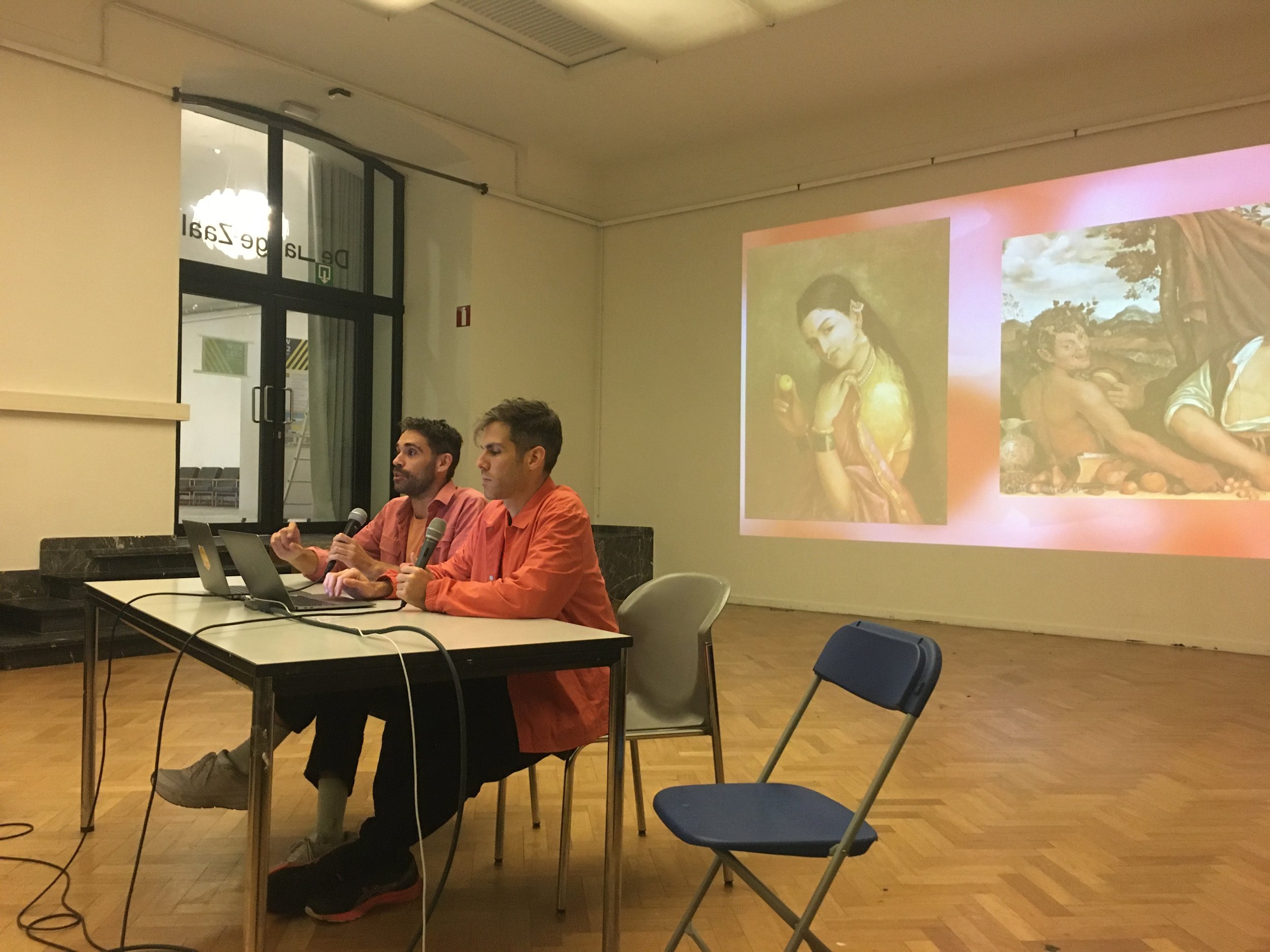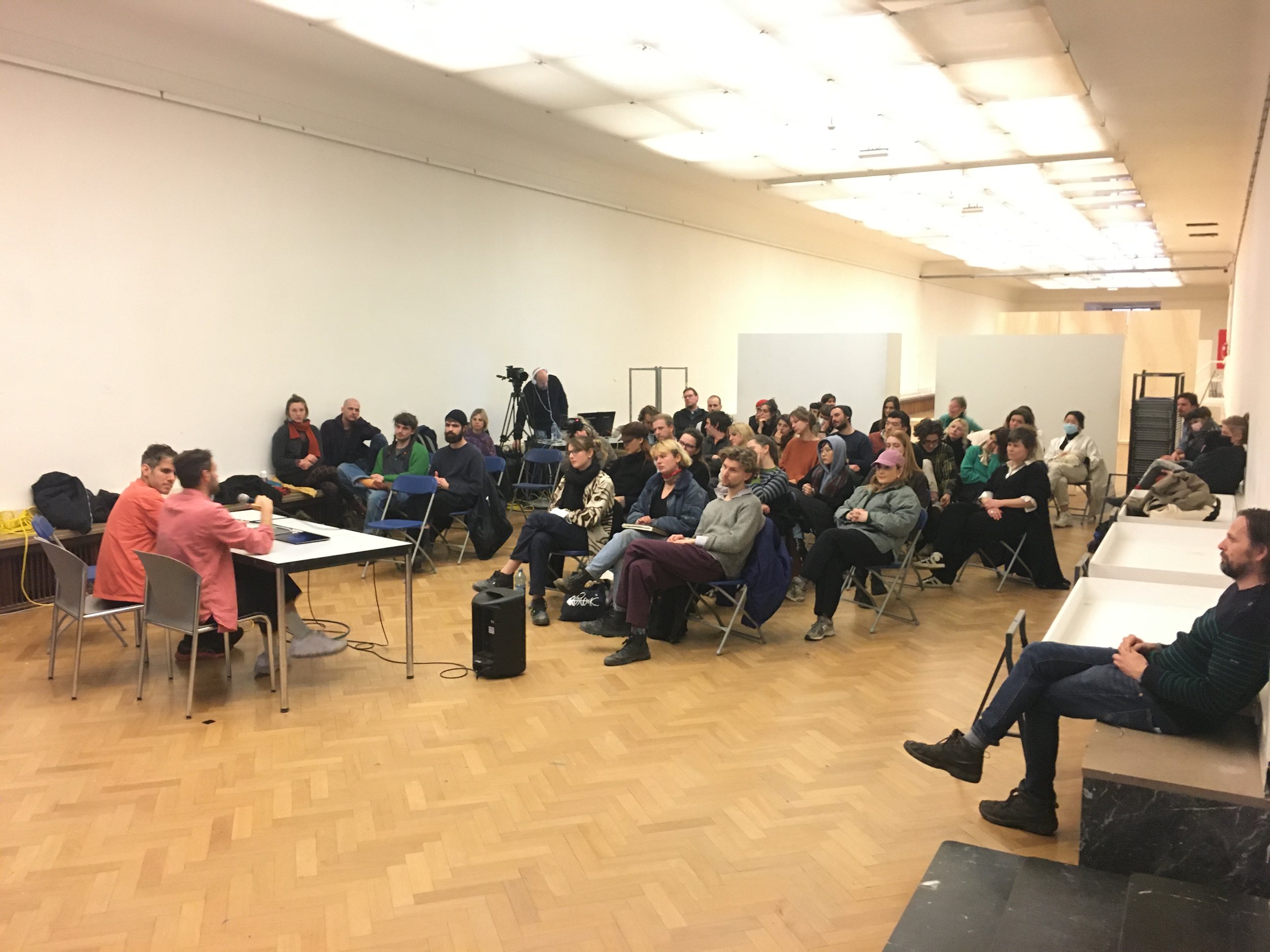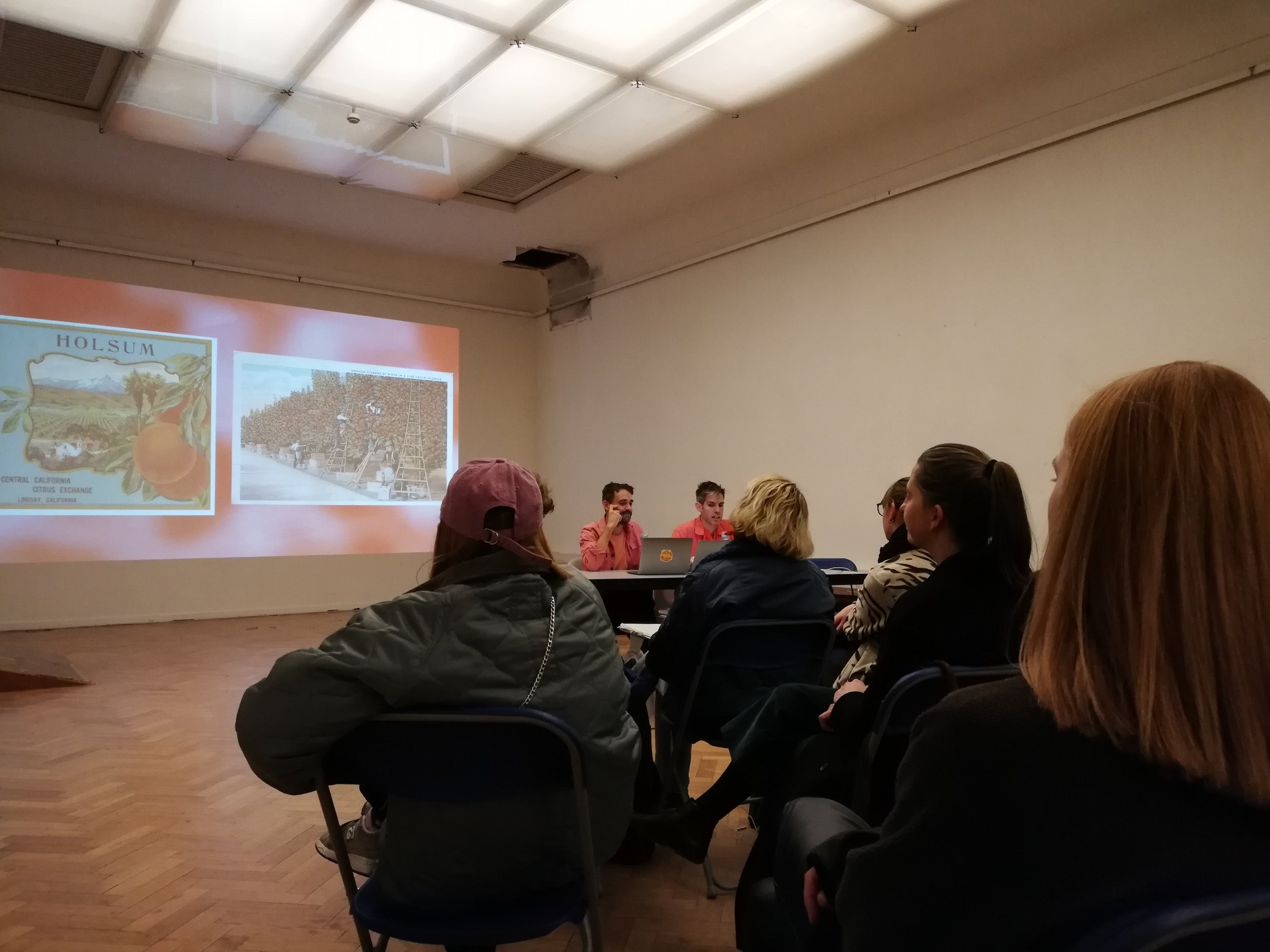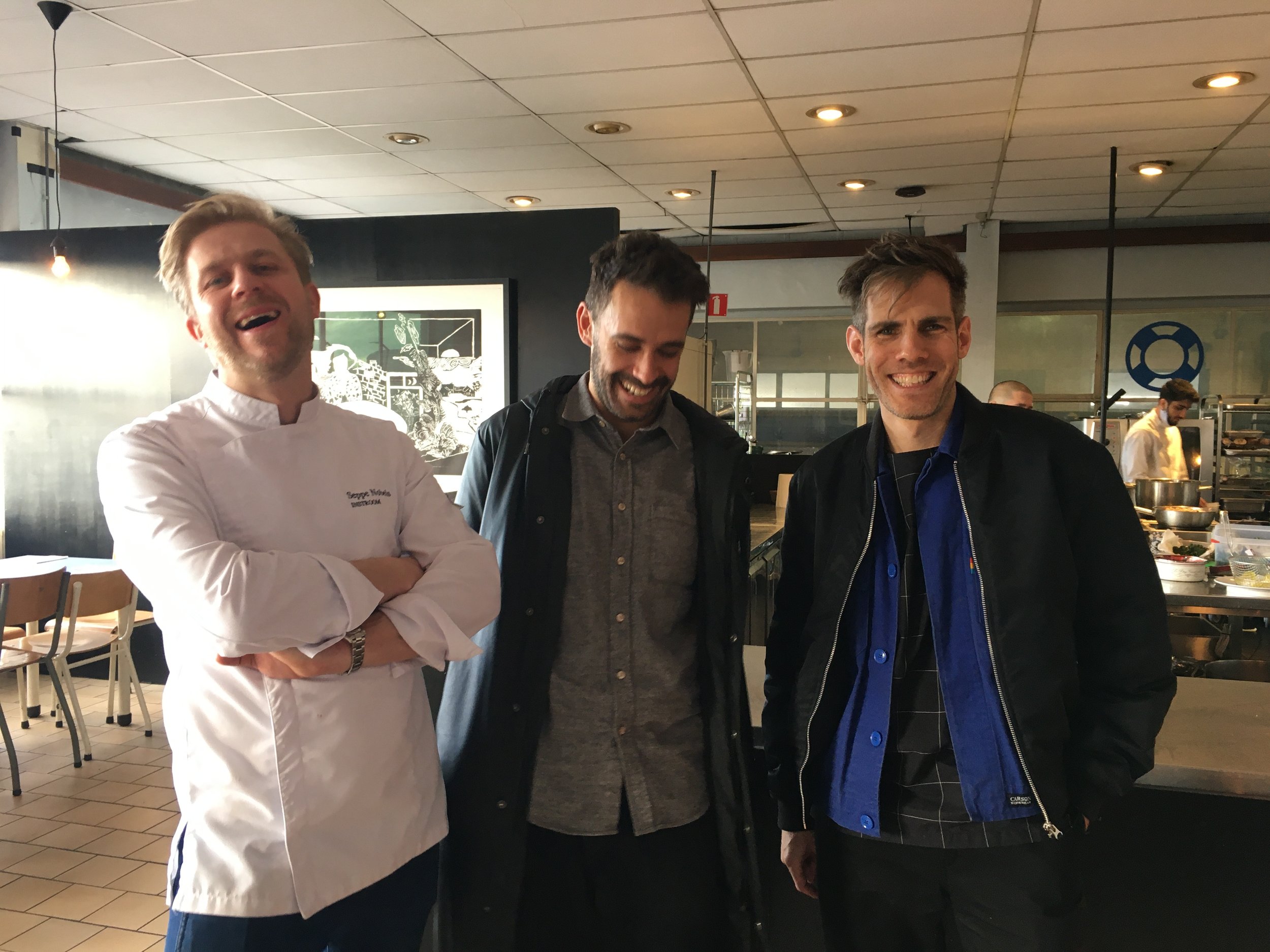On Wednesday 23 February 2022, the London based artist duo Cooking Sections (Alon Schwabe and Daniel Fernandez), who examines the systems that organise the world through food, share their artistic long-term project CLIMAVORE in a public lecture (Guess Who's Coming to Dinner)
CLIMAVORE asks how do we eat as humans change climates?
CLIMAVORE recognises that new 'seasons' are emerging. The lines between spring, summer, autumn and winter are increasingly blurred, while periods of polluted oceans, soil exhaustion, subsidence, pandemics and droughts are becoming more prevalent.
CLIMAVORE collaborates with experts in ecology, marine biology, agronomy, nutrition, and engineering among others.
CLIMAVORE proposes an adaptive form of eating, shifting for instance to drought-resistant crops in a period of water scarcity or filter feeders during times of polluted waters by fish farms.
Using site-responsive installation, performance and video, they explore the overlapping boundaries between art, architecture, ecology and geopolitics. Established in London in 2013 by Daniel Fernández Pascual and Alon Schwabe, their practice uses food as a lens and tool to observe landscapes in transformation. They have worked on multiple iterations of the long-term site-responsive CLIMAVORE project since 2015, exploring how to eat as humans change climates. In 2016 they opened The Empire Remains Shop, a platform to critically speculate on implications of selling the remains of Empire today. Their first book about the project was published by Columbia Books on Architecture and the City. Cooking Sections was nominated for the 2021 Turner Prize




